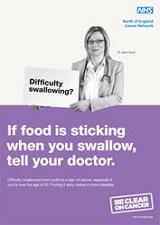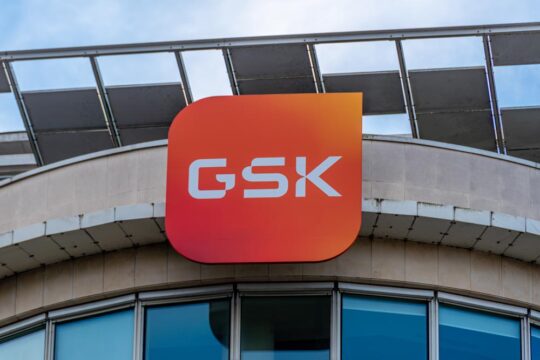Advertisment
ASCO 2013 – Cancer services in the United Kingdom: Improving nicely

by Elizabeth C. Smyth, MB, BCh, MSc, and David Cunningham, MD, FRCP, FMedSci – In 2000, in order to optimise service provision for patients with cancer, 34 “Cancer Service Networks” were established in England to instigate change and improve outcomes in geographically defined areas (three more were developed in Scotland and one each in Wales and Northern Ireland).
Concurrently, changes in workforce practice led to the establishment of the multidisciplinary team as a core concept for the delivery of oncology care in the hospital system, and numbers of both consultant medical and clinical oncologists and clinical nurse specialists also increased substantially over the same period. The National Health Service (NHS) has defined several important targets for cancer service provision in the United Kingdom. These include a 2-week wait target for urgent referrals from primary care to a cancer specialist (a pathway that accounts for 54% of new cancer diagnoses). More than 1.1 million urgent referrals were made in 2011-2012 through this mechanism (almost 10% higher than 2010-2011).1
Dr. Elizabeth C. Smyth
Despite this increase in patient volume, 95.5% of patients were seen within the 2-week target.1 A second target of 2-month maximum wait from urgent referral to treatment for all cancers has also been successful, with 87.3% of patients referred in the fourth quarter of 2011-2012 treated within the specified timeframe.1
Dr. David Cunningham
Other NHS cancer successes include HPV vaccination rates in the United Kingdom, which are among the highest in the world—84.2% of the target population (12- and 13-year-old females) completed the three-dose course in 2010-2011, despite the fact that only 3% of the NHS cancer budget is devoted to cancer prevention.2 It has been reported that some inferior cancer survival outcomes in the United Kingdom may be a result of the proverbial “stiff upper lip,” with patients reluctant to discuss cancer-related symptoms with their primary care provider.3 In an effort to combat this, NHS has launched the high-profile “Be Clear on Cancer” campaign, which highlights symptom awareness and encourages early self-referral to a doctor (see images below).
Results from early pilot studies have been promising. Finally, the NHS is also working collaboratively with industry and cancer charities such as Cancer Research UK (CRUK) to establish a “Stratified Medicine” program. This program will hopefully allow molecular characterization of patient tumors to be performed nationally in order to optimize patient access to targeted therapy and to encourage the use of these results for research. This program is being run as a pilot at seven large cancer centers and will test 9,000 patients with breast, colorectal, ovarian, lung, and prostate cancers, as well as melanoma, for a panel of prioritized treatment-related genes.
Success for the National Cancer Research infrastructure
Simultaneously with the restructuring of the U.K. cancer service provision, a need was identified to develop a national research infrastructure that would allow improved access for patients and clinicians to quality clinical trials. The National Cancer Research Network (NCRN) was created in April 2001 for this purpose (similar networks exist in Scotland, Wales, and Northern Ireland). Resources (research nurses, trial coordinators, and research network managers, plus funding of £200,000 per million catchment population) were provided to work in parallel with cancer service providers along similar geographic boundaries to the recently established Cancer Service Networks.4,5
Clinical Studies Groups composed of multidisciplinary experts, patients, and funding representatives were created to oversee the development of research portfolios across all cancer groups and themes, such as translational research and supportive care. Consolidation of funding structures was delivered through the establishment of National Cancer Research Institute. Prior to the founding of NCRN, approximately 3.75% of new patients with cancer were enrolled in clinical trials. This figure had increased to greater than 10% by the third year of NCRNs operation.
In 2009-2010 the equivalent of one in six patients with cancer was enrolled in a national portfolio study.5 Furthermore, recruitment to time and target has also substantially increased (74% vs. 39% before 2001) since the establishment of the NCRN. This growth had occurred both in cancer centers and in smaller cancer units highlighting the enthusiasm of the broader oncology community in the United Kingdom regarding clinical research. The remit of the NCRN was expanded in 2005 to include commercially sponsored studies that meet prespecified quality criteria within the NCRN portfolio. This has further increased recruitment rates, although not to the detriment of academic studies.
Recent large national and international practice-changing randomized controlled trials, which have been supported by NRCN, include AZURE, MAGIC, QUASAR, COIN, and ICON7. Worryingly, however, the rate of growth in recruitment has recently slowed. This may be reflective of the increased burden of documentation and regulatory issues surrounding the implementation of the European Union Clinical Trials Directive in 2005, which has resulted in a significant delay in opening of many clinical trials within the European Union.
Equity in a resource-constrained environment
In common with most developed countries that provide government-funded health care for all, the U.K. NHS faces with finite resources the challenge of balancing access for patients with cancer to expensive novel therapeutic agents (which frequently provide marginal clinical benefit) with provision of equitable care and services. Prices paid by the NHS for drugs are important, although the United Kingdom represents only 3% of the global pharmaceutical market.
NHS prices are referenced by a quarter of markets internationally. The National Institute for Health and Clinical Excellence (NICE) was set up in 1999 to enhance the use of evidence and social values in health care policy. NICE’s Health Technology Appraisals, which determine what drugs are cost effective and thus merit reimbursement within the NHS, have frequently been controversial. Foremost among these controversies was the rejection in 2009 of sunitinib as a cost-effective treatment for metastatic renal cell carcinoma. This decision resulted in public patient protests, parliamentary and press debate, and ultimately a reversal of the original decision with new NICE guidance parameters affecting therapies (primarily those used in oncology) used at the end of life (EOL).
Specifically, EOL criteria, which reflect both cost effectiveness and social value judgments, are applied to therapies for patients with a life expectancy of less than 2 years. These treatments, for which the eligible patient population is small, must extend life by a minimum of 3 months compared with current treatment.6 The introduction of the flexibility allowed by the EOL criteria has led to a significant number of approvals of drugs that did not meet NICE’s cost-effectiveness ratio of £20,000-£30,000 per quality-adjusted life year (QALY). However, not all new cancer drugs have been approved using these criteria, as evidenced by the rejection of sorafenib for hepatocellular carcinoma and bevacizumab for renal cell carcinoma during the same period.
In response to on-going political pressure, in April 2011 the U.K. government introduced a £600 million Cancer Drug Fund (CDF) that provided locally administered funding for cancer therapies that were licensed but not approved by NICE. Although both the EOL NICE guidance and the establishment of the CDF were understandably applauded by cancer advocates, this acceptance was not universal. Non-oncology patients and clinicians contested the undermining of the strictly evidence-based NICE apparatus and the inequitable allocation of resources to patients with cancer. The CDF will be available until April 2014 when it will be superseded by a value-based pricing initiative. The initiative will require that not only will the NHS determine a marginal price at which a drug is considered cost effective and, therefore, approved for funding, but the NHS also must negotiate the price the United Kingdom is willing to pay for the drug.
Early evidence for the utility of this approach is seen in the increasing number of Patient Access Schemes, which are negotiated as part of a “third way” following rejection of initial NICE submissions for molecularly targeted agents. The effect of these schemes (either through cost sharing or a variation on cost capping) is to reduce the effective cost of the drug to the NHS, leading to gains in the incremental cost-effectiveness ratio. It is hoped that the value-based pricing initiative will lead to improved access to effective therapies for patients with cancer while also considering the opportunity costs for society as a whole regarding these novel therapies.
Although the United Kingdom will continue to face challenges with respect to improving cancer survival, it is hoped that through ongoing investment in the services and staff that serve patients with cancer, continued development of the national research infrastructure and forward-looking initiatives, such as the Stratified Medicine program and value-based pricing, oncologists in the United Kingdom will remain at the forefront of both innovative and practical cancer research for decades to come.
About the Authors: Dr. Smyth is a senior clinical research fellow in gastrointestinal oncology at the Royal Marsden Hospital Foundation Trust in London, United Kingdom. She has been an ASCO member since 2008. Professor Cunningham is Head of the Department of Gastrointestinal Oncology and Lymphoma and Director of the Biomedical Research Centre at the Royal Marsden Hospital and Institute of Cancer Research, London. He has been an ASCO member since 2000 and a member of both ASCO’s Scientific Program and Cancer Education Committees.
References:
- CRUK. Cancer Services: Reverse, Pause or Progress? wwwcancerresearchukorg 2012. (Accessed March 25, 2013, at http://immunisation.dh.gov.uk/annual-hpv-vaccine-coverage-in-england-in-201011-report/.)
- Forbes LJL, Simon AE, Warburton F, et al. Differences in cancer awareness and beliefs between Australia, Canada, Denmark, Norway, Sweden and the UK (the International Cancer Benchmarking Partnership): do they contribute to differences in cancer survival[quest]. Br J Cancer 2013;108:292-300.
- Stead M, Cameron D, Lester N, et al. Strengthening clinical cancer research in the United Kingdom. Br J Cancer 2011;104:1529-34.
- Cameron D, Stead M, Lester N, et al. Research-intensive cancer care in the NHS in the UK. Annals of Oncology 2011;22:vii29-vii35.
- Chalkidou K. Evidence and values: paying for end-of-life drugs in the British NHS. Health Econ Policy Law 2012;7:393-409.








